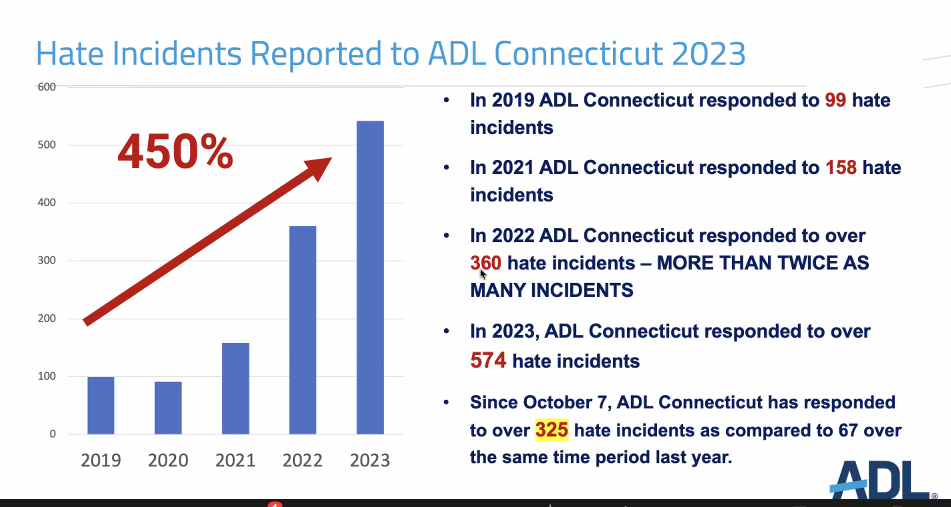Love Your Neighbor: Antisemitism in CT
I recently attended a webinar sponsored by the West Hartford Library presented by Stacey Sobel, Regional Director of the Anti-Defamation League Connecticut, to understand antisemitism better. This is not intended to be a pro-Israel or pro-Palestinian essay. It is an essay about how antisemitism affects all of us.
As you read this, remember that “Love Your Neighbor as Yourself” is the second great commandment of Jesus. It immediately follows His commandment of loving God with all your heart, mind, and soul. Jesus taught us that it is not about asking who our neighbor is; rather, it is about our willingness to be a neighbor ready to love.
Let me provide some background so we all begin on the same page. The International Holocaust Remembrance Alliance (IHRA) created the following working definition of antisemitism which 43 countries, including the US, have adopted:
Antisemitism is a particular perception of Jews, which may be expressed as hatred toward Jews. Rhetorical and physical manifestations of antisemitism are directed toward Jewish or non-Jewish individuals and their property, toward Jewish community institutions and religious facilities.
With that as our baseline, let me share some of the statistics provided by Ms. Sobel in her webinar. She began by sharing some of the stereotypes of Jews:
· Jews are more loyal to Israel than this country.
· Jews have too much power in the business world.
· Jews think they are better than other people.
· Jews don’t care about what happens to anyone but their kind.
· Jews are responsible for most of the world wars.
With stereotypes like these spreading worldwide, look at the statistics below provided by the ADL to see the impact they have right here in Connecticut. Think about it. These are our friends and neighbors.
What can we do to fight Antisemitism:
· Report incidents to law enforcement and the Anti-Defamation League (ADL).
· Stay informed, be educated, know history, learn facts.
· Encourage community leaders, university leaders, and elected officials to speak out.
· Be an ally and an upstander, not a perpetrator, bully, or bystander.
· Don’t amplify hate or divisiveness.
· Use media and social media to amplify your voice.
Another important lesson from Jesus: In loving our neighbor as ourselves, we realize that we should not wait for when we feel loved before we start to love others. We do not have to wait until we feel we have a surplus of self-love before giving it away to our neighbors. The commandment is clear: love your neighbor exactly as you love yourself: no more and no less.
- Eileen Brogan


